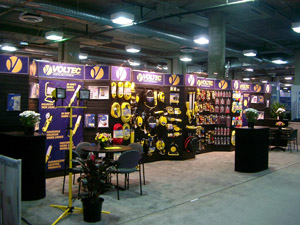Mexico Gains from China's Recent
2010/08/26 | By Michelle HsuThe importance of Mexico's auto industry is growing as manufacturers there take advantages of low wages, free-trade relationships, and geographic advantage
Mexico, located opposite Asia on the eastern rim of the Pacific Ocean, is expected to benefit from China's recent labor unrest as it offers similar labor costs and much cheaper shipping for automakers eyeing the North American market.
Furthermore, Mexico has free-trade deals with 25 countries. “That makes it an ideal place to bring in raw materials and then ship cars or parts,” said Sean McAlinden, chief economist at the Center for Automotive Research. It would be a good bet for Chinese carmakers to build plants there country, he added.
According to the research center, rising wages at Chinese auto plants have brought them almost to the US$7 an hour all-in cost, including fringe benefits, at Mexican plants.
“If you add in the US$1,200 to US$2,000 per-car cost to ship vehicles across the Pacific, Mexico looks better all the time,” McAlinden commented.
With all these advantages, Mexico has attracted automakers from all over the world, and nearly 40 car brands are now fighting for a piece of the market there. Ford, General Motors, DaimlerChrysler, Volkswagen, Honda, and Toyota all operate plants in Mexico. In addition to its free-trade privileges, Mexico's growing domestic market provides an added incentive for automakers to expand production there.
Mexico now accounts for 16% of North American vehicle production, and that figure may continue growing to top 20% in the years to come.

Boosting the Auto Industry
According to the Mexican Auto Industry Association (AMIA), carmaking constitutes that country's biggest manufacturing sector. The U.S. recession led to a plunge in output in 2009, and a number of Mexican assembly plants closed temporarily as a result of curtailed demand; the industry has experienced a sharp rebound this year, however, thanks to increasing shipments to neighboring countries.
Mexico is currently the world's 11th largest automaker and may move up the ranks in the years ahead. Its auto production in June was more than double the amount a year earlier, and exports, soaring 109% over the same period to 177,575 units, continued to gain market share in the U.S., Canada, and Latin America.
Starting this year, Mexico has shipped thousands of cars to Africa and Asia—markets where its exports had little or no presence last year. Domestic sales remained relatively feeble, growing just 7% in June compared with a year earlier, to 59,909 vehicles.
The rebound in auto output has led Mexico's economic recovery. The National Statistics Institute reported that May's industrial production was up 8.4% from a year earlier, and that manufacturing gained 14.2%.
Chinese Presence
A Chinese automaker, First Automobile Works, began exporting cars to Mexico in 2007, looking to tap the market for inexpensive cars there. It then set up a joint venture with local partner, Grupo Salinas, to produce autos for the domestic market. The venture's plant, located in Zinapécuaro in the west-central state of Michoacán, will start operating this year with an annual capacity of 100,000 cars.
“There has been much speculation in the American auto industry over when Chinese automakers will begin exporting to the United States,” commented a Grupo Salinas official. “But the smaller Mexican market may prove easier to penetrate, at least with small, low-priced cars aimed at working-class Mexicans.”
The Chinese imports are sold through Grupo Salinas's Elektra retail chain, which has a long history of marketing household appliances, electronic goods, and furniture to working-class Mexicans on credit. It also sells Chinese-made motorcycles.
The joint venture “will allow for the incorporation of thousands of families as customers in the automobile market,” the company official said.
Auto Parts Market
Mexico's auto parts industry is closely related to the U.S. auto industry. Mexico has about 1,000 parts manufacturers, around 70% of which are subsidiaries of foreign corporations, mainly American.
Automotive accessories consist of all of those parts that are used to enhance the appearance of a vehicle, to increase performance, and to replace original parts with upgraded luxury items such as seat covers, door and window handles, chrome plated exhaust pipes, and larger sized wheels and tires for cars, pick-ups, and trucks.
Although there is substantial local production of these items in Mexico, most of them are imported.
Participation in Mexican automotive trade shows provides an excellent opportunity to introduce new products and services to that market. The greatest opportunities for automotive aftermarket parts will still include collision repair parts, catalytic converters, steering wheels and sound systems and generally all types of accessories.




